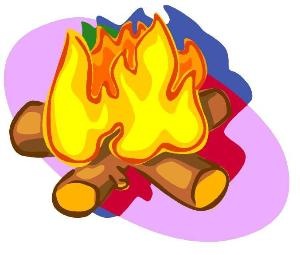Bonfire Guidelines
Please follow the guidelines below.

A bonfire can be a useful way for disposing of garden waste that cannot be composted. Remember that the allotment sites are surrounded by residential properties and we need to ensure that you do not cause a nuisance to others when disposing of your waste.
Currently the main bonfire time is around Guy Fawkes Night. If you do have a bonfire to dispose of garden waste, please ensure that you follow the committee’s good bonfire guidelines.
Only have bonfires on the days designated by the allotment committee, currently these are 4-6 November and on the weekend of the AGM.
Do not bring any refuse from outside the site to burn on the allotment. This includes household rubbish,rubber tyres or anything containing plastic, foam or paint, aerosols and glass bottles. This is not an exhaustive list!
Keep your bonfire to a manageable level. No more than 1.5 metres or (4.5 feet) squared and 1.0metres (3 feet) high. If this rule is not adhered to your bonfire may be dismantled! Keep your bonfire away from trees, fences and sheds. Remember sheds may highly combustible materials.
Never use oil, petrol, methylated spirits or any other accelerants to light a fire– you could damage yourself as well as the environment. Never leave a fire unattended or leave it to smoulder – always put it out. It is advisable that you have a bucket of water handy in case your bonfire gets out of control and in order to put it out.
Where possible only burn dry material not damp, which causes more smoke Feed your fire regularly with small amounts of fresh material – hot fires with visible flames create less smoke.
Ensure that care is taken when children are around; keep a look out for wild animals and pets in a bonfire before you light it. Remember to check for hibernating hedgehogs and sleeping pets!
Incinerator bin burning
If you have an incinerator bin please ensure that you only use it with the lid on.
Keep the incinerator bin as far away from residential properties as you can to minimise the nuisance that the smoke may cause. Also try not to use your incinerator bin on excessively windy days to minimise the nuisance that the smoke may cause, and where possible only burn dry material not damp, which causes more smoke.
Please be aware that the incinerator bins become very hot and it is advisable that gloves are worn if moving the bin or the lid. Ensure that care is taken when children are around. Please be aware that the incinerator bins stay hot for a considerable period and the removal of the lid can reignite a fire within so ensure your bin is out before you leave your plot.
Issues with others
If you see any other plot holder contravening these rules, please contact a committee member as soon as possible. We do not want to run the risk of upsetting the neighbours or the council!
Legal stuff you need to know
It is an offence under the Act to cause a statutory nuisance. This includes smoke, fumes or gases “emitted from premises so as to be prejudicial to health or a nuisance” and includes nuisance created by bonfires and Incinerator bins. Under the Environmental Protection Act 1990 (as amended), Environmental Health has a statutory duty to investigate potential statutory nuisances,including bonfire complaints. If it is determined that a statutory nuisance exists, is likely to occur or has previously existed and is likely to recur, then an abatement notice may be served. Where such a notice is contravened or not complied with, enforcement action may follow which could result in prosecution and a fine at the current scale. Should an abatement notice be served, your allotment tenancy will be reviewed by the committee and may be terminated.Highways Act 1980 Anyone lighting a fire and allowing smoke to drift across a road faces a fine if it endangers traffic. Contact the police in this case.
Environmental Protection Act 1990
